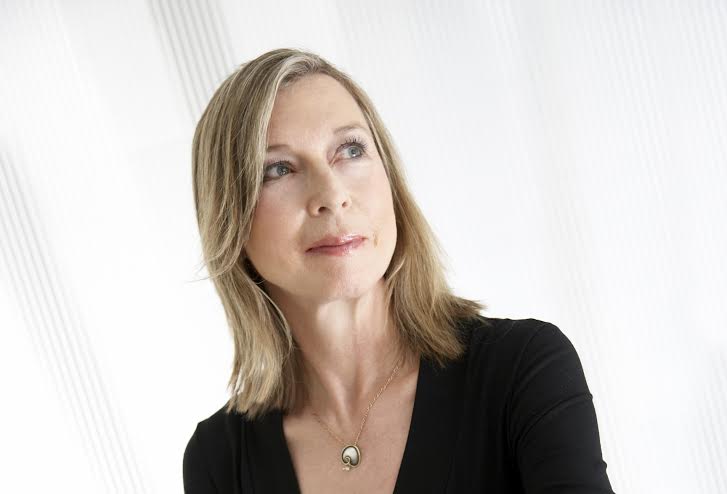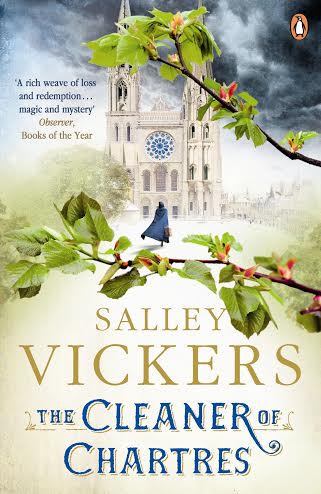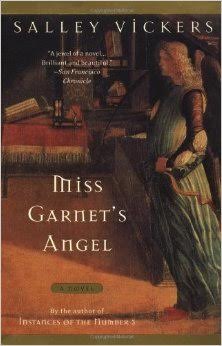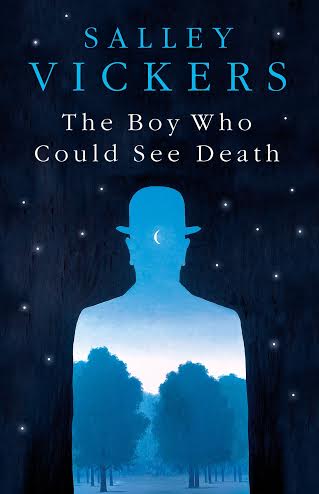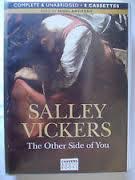I read Miss Garnet’s Angel a while ago now, and absolutely loved it and thought it would be fascinating to interview Salley Vickers, the author. At last I’ve managed to find a window in her busy life, and here she is to answer questions for Frost Magazine. What’s more you can hear her talking about The Boy Who Could See Death on 29th September at the Windsor Literary Festival.
You had an interesting but complex childhood, and felt that you had a sense of some unspecified task to fulfill. Did that sense drive you? Does it still?
Yes, I think it does. My parents imbued me with a feeling that one should work for the general good. In my case, that is best done by conveying my attitude to life through my writing. But also they endowed me with a strong sense of the basic equality of all, and what people seem to like in my novels is finding aspects of their own hidden being there, which gives a sense of being understood. I feel sure this is part of the power of a good novel – the capacity to make us feel known and perceived in our most private recesses of being.
Most of us grow up with parents defined in some way by their past. If it is a traumatic past, it can lead us to have an enhanced ‘political’ sensitivity, in order to weave our way through the rocks. We learn what to reveal, and what to hide.
This is a skill I notice in your books, so would you agree that we authors write out of our past?
Inevitably, we write out of our conscious but, more powerfully perhaps, unconscious experience. The novel I have just completed, (‘Cousins’ published Viking March 2016) explores the way trauma recurs through a family history, even if the past is unknown to those in whom it re emerges. Nothing fascinates me more than how memory, both conscious and unconscious, lives on beyond the limits of any individual life.
You write with grace, but with ‘political’ care, holding back information, and then revealing. It gives an implicit tension. So – perhaps authors are not just influenced by their past, but trying to make some sense of it? What are your thoughts on this?
I am sure I write to discover what I already ‘know’. What we think we know, what we know we don’t know and what we know but ignore are very common human conditions which I often explore. A previous career as a psychoanalyst has taught me to reflect on these levels of seeming ‘knowledge’.
Or are we just story tellers, or both?
Everything is story, in my view. Even science is a series of superseding stories. We are hard wired to make sense of experience through narrative. In analysis the work is to find a more workable version of the story a person tells themselves about their life. A writer’s job is to follow a story that has its own organic truth and is not a ‘truth’ imposed by the author’s own prejudices or intent.
How did you start your writing career? With short stories, or straight into Miss Garnet’s Angel?
Miss Garnet began life as a short story and just grew. I had no idea of publishing it. Like much of real significance in my life it was a happy accident – as were both my wonderful children.
How do you work? Do you have the germ of an idea, spend time thinking and then planning? I ask this because your novels are multi-layered. They are psychological, mythical, in some ways fairy tales, but grounded ankle deep in reality. I believe I would need to think, and plan, and know where I was going, and what I wanted to say to achieve this level of complexity, and present it, as you do, in such an accessible way.
I never never plan. I hear a voice, revisit a much loved place, recover a memory and then let imagination, memory, sudden encounter, whatever accrue around it, rather like the grit of sand that through a nacrotising effect becomes a pearl. The excitement of writing for me is not knowing what is going to happen. I never know the end of a novel, or a story, until very near the end and then it is often a major surprise.
Do you enjoy writing or do you find that starting a novel is daunting because until you have finished it, you have half a foot, or more, in their world? I ask this because once I start, I find that I need to ‘be’ the characters. Well, not even need to be, I am, the characters. Someone once said, that an author is writing their life story so absorbed do they become in the world of their characters.
I love it once I’m in it. I tend to spend the first part of a book in a restless state of acute anxiety. Then once I get over a certain sort of hump I really let rip and can write for very long hours. But your unnamed authority is right: it does become one’s own life story and I think much of the excitement comes from living out a life that is both one’s own and yet not one’s own. I write out of myself lives I have never lived but live through writing them.
Of all the books you’ve written, which is your favourite?
Probably the last one I have written – but if you point a gun at my head it would have to be either ‘The Other Side of You’ or ‘The Cleaner of Chartres’.
Have other authors influenced you?
Oh yes. Many. I grew up in a reading household, for which I am ever grateful, and had read all the classics by the time I went to university. Henry James, George Eliot, Trollope, Conrad have all influenced me. Also Beatrix Potter on whom I learned to read and from whom I learnt about cadence (if you listen to Beatrix Potter the prose is exquisitely cadenced).
But of more contemporary authors, Penelope Fitzgerald and William Maxwell are my heroes. Penelope Fitzgerald did me the great honour of endorsing Miss Garnet shortly before she died. I’ve not had a higher or more precious encomium since.
What next?
Cousins and after that it’s a secret, even from myself
What do you do when you are not writing?
The usual introvert’s pleasures: read, walk, talk to friends, listen to music, go to the opera/ ballet.
What brings you joy?
Children (this is boast but I am reliably informed by my grandchildren that I am very good indeed at playing), birds, poetry, dancing, and I must confess also …. shoes…
Salley Vickers is talking at the Windsor Literary Festival on 29th September at 7.00 pm. She will be discussing The Boy Who Could See Death. The boy is question is Eli, who is an ordinary lad with an extraordinary gift, or is it a curse?
For more information:

